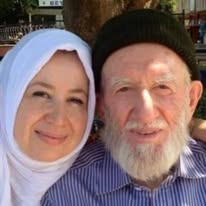In a stirring open letter addressed to Sheikh Osama al-Rifai, the Grand Mufti of the Syrian Republic, and the fourteen members of the Fatwa Council, renowned Syrian-Canadian intellectual and human rights advocate Dr. Afraa Jalabi issues a bold and urgent plea: to declare, in religious and legal clarity, the inviolability of Syrian blood, and to criminalize sectarian violence in post-authoritarian Syria.
Framed in the language of prophetic tradition, Islamic ethics, and moral accountability, the letter calls for a transformative turning point—one grounded not in vengeance but in the principles of justice, equal citizenship, and the rule of law. “Is it not our sacred duty,” Jalabi writes, “to echo the Prophet of Mercy and proclaim the beginning of a new covenant: a covenant of equal citizenship and of the rule of law?”
Drawing inspiration from the Prophet Muhammad’s sermon after the conquest of Mecca, she quotes his historic declaration of a new era in which all pre-Islamic violence, discrimination, and tribal vengeance were abolished. Jalabi calls upon Syria’s religious leadership to issue a similarly courageous and morally binding fatwa: one that forbids all forms of sectarian harm and affirms the sanctity of life as the foundational pillar of Syria’s future.
Dr. Afraa Jalabi is a prominent Syrian-Canadian writer, academic, and human rights advocate. She has long been engaged in interfaith dialogue, peacebuilding, and democratic reform efforts in Syria and the broader Middle East. Known for her contributions to feminist Islamic thought, she has written extensively on the intersection of gender, Islamic ethics, and nonviolence.
Syria Reels from Wave of Violence: Massacres in Homs and Baniyas Leave Over a Dozen Dead
The letter is also a direct response to documented atrocities in the Syrian coastal region—acts that include the targeting of civilians, the unlawful seizure of homes, and the dismissal of people from their jobs for sectarian reasons. These violations, Jalabi warns, are symptomatic of a deeper crisis: the misuse of religion to justify injustice, the perpetuation of collective punishment, and the erosion of Syria’s moral compass.
“It is a sin before God,” she writes, “to criminalize an entire sect and exonerate the rest when the crime falls on individuals and not groups.” The remedy, she argues, must be a return to Islamic values that transcend blood, tribe, and ideology. “Even if some of the predecessors in the history of the Ummah said it, ‘That nation has passed away, theirs is what they earned and yours is what you earn.’”
A reflective letter
Jalabi’s plea is not just theological—it is deeply political. She reminds the Mufti and his fellow scholars that religious authority carries moral weight, but that true transformation requires political will. Any fatwa, she says, must be matched by a decisive governmental commitment to uphold the rule of law.
The tone of the letter is not accusatory but deeply reflective. Jalabi, who has been one of the early voices from the Syrian diaspora calling for a peaceful, inclusive transformation rooted in justice and the dignity of all citizens, weaves together Qur’anic verses, Hadiths, and historical references to argue that Syria is at a moral crossroads. The fall of the Assad regime, she contends, was “nothing short of miraculous.” But with such miracles come responsibilities. “It is a test and a trial, and we have no right to pride or entitlement in it, no matter how hard we try,” she writes. “If we find ourselves in a position of authority, we must hold ourselves accountable and not disbelieve in God’s grace.”
Jalabi, whose intellectual work continues to shape discourse on Islamic reform and the moral future of Syria, warns against falling into the very patterns of tyranny and sectarianism that Syrians once rose up against. The ethical foundation of Islam, she stresses, is one of safety—of lives, property, and thought. The Prophet defined the Muslim as one from whose “tongue and hand others are safe.” This, she insists, must be the ethos of the new Syria.
Syrians, she writes, have paid a heavy price. “They have migrated with their souls from the values of tyranny to those of justice and compassion.” In doing so, they found in other nations—under the rule of law—a form of refuge reminiscent of Abyssinia during the Prophet’s time. These nations became a mirror, she suggests, reflecting back to Syrians what their own homeland could be.
In a final moral crescendo, she calls for courage: “As Muslim men and women, we are accountable before God before being accountable to the world. We must speak the truth, without fear… locally or internationally.” Her letter is both a lamentation and a vision—a call to spiritual renewal and ethical governance.
Ending her letter with the words “O God, bear witness,” she congratulates the Mufti on his appointment following his suffering and exile, and signs as “Your sister in faith.”
This article was translated and edited by The Syrian Observer. The Syrian Observer has not verified the content of this story. Responsibility for the information and views set out in this article lies entirely with the author.


